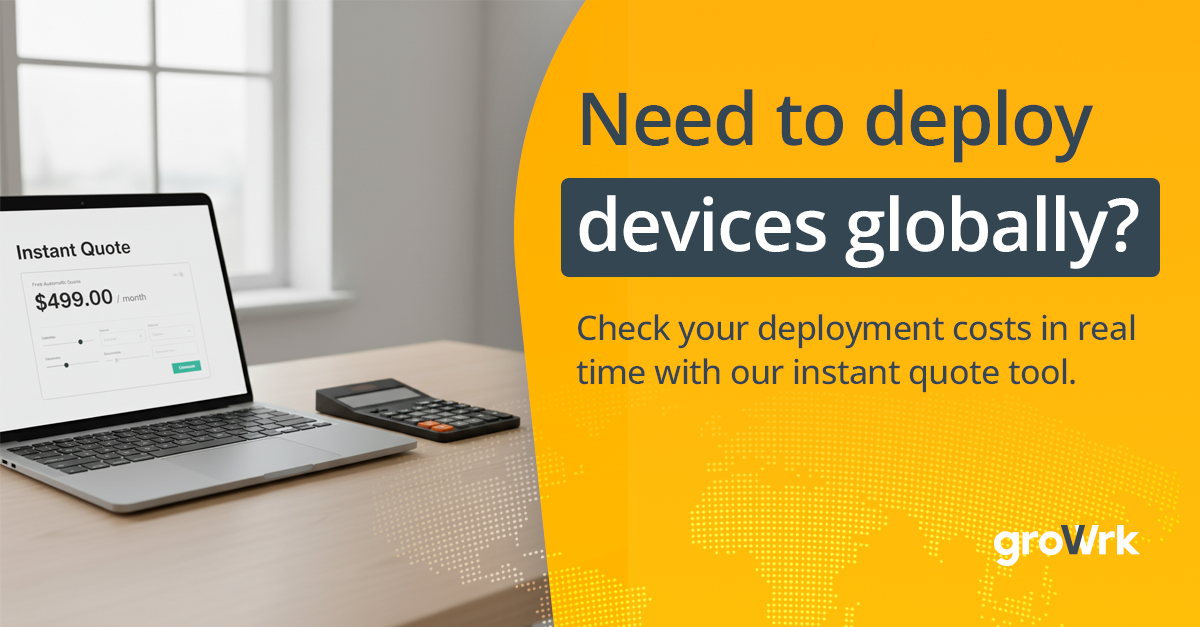How to send IT equipment to the Netherlands
Equip your distributed teams in the Netherlands with the essential IT equipment without any hassle. From shipping laptops to managing IT assets, GroWrk effortlessly handles logistics, compliance, and customs so you can focus on what matters—growing your business.
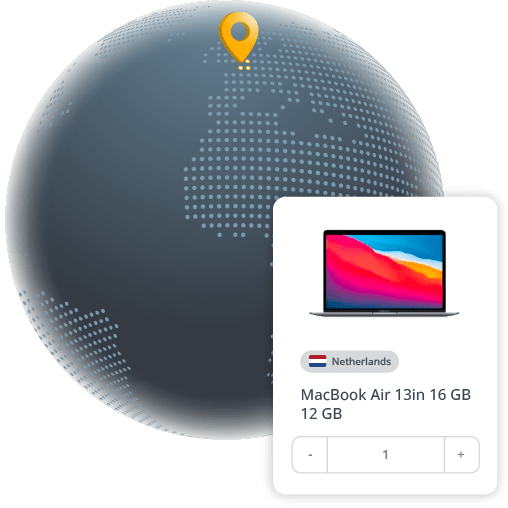
At a glance
The Netherlands is a leading tech hub with cutting-edge digital infrastructure, a thriving startup scene, and strong demand for cloud and cybersecurity solutions. However, shipping IT equipment or managing IT operations requires navigating customs, compliance, and logistics challenges. Understanding these regulations is essential for businesses looking to deploy IT assets or outsource IT services in the Netherlands.
|
CURRENCY Euro (EUR) |
OFFICIAL LANGUAGE Dutch |
TIME ZONE Central European Time (CET) GMT+01:00 (Central European Summer Time (CEST) GMT+02:00 during daylight saving time) |
|
CUSTOMS DUTY ON ELECTRONICS 0-17% + 21% VAT Between 0% to 17% depending on the item, and 21% VAT. |
SHIPPING LEAD TIME 1-2 days For major business centers |
IT OUTSOURCING MARKET €10.61 billion The ITO market in the Netherlands is expected to grow at a CAGR of 10.08%, reaching 13.12 billion by 2028 |
Overview of IT operations in the Netherlands

Government initiatives: Programs like “Digital Netherlands” aim to enhance the country’s IT infrastructure, fostering innovation and creating a highly connected digital economy.
Skilled workforce: The Netherlands boasts a strong pool of IT professionals excelling in areas like software development, cybersecurity, and data analytics.
IT market growth: The Dutch IT market is projected to experience steady growth, with a forecasted CAGR of 4.86% from 2024 to 2029, driven by increasing investments in technology and digital services.
Strategic location: Situated in the heart of Europe, the Netherlands provides seamless access to key European markets, making it a hub for IT services, logistics, and innovation.
Shipping IT equipment to the Netherlands: What you need to know
| Customs regulations |
The Netherlands has specific customs regulations for importing IT equipment such as laptops, monitors, and other electronics. All goods entering the country are subject to inspection to ensure they comply with EU and Dutch laws. Make sure all items meet European safety, environmental, and CE marking standards to prevent issues during customs clearance. |
| Duties and taxes |
Customs duties and taxes typically apply when importing IT equipment into the Netherlands. The rate depends on the type of equipment and its classification under the EU Combined Nomenclature (CN) codes. Be prepared to pay Value Added Tax (VAT), which is 21% in the Netherlands. Customs duties are calculated based on the customs value, which includes the cost of the goods, shipping fees, and insurance. However, shipments valued under €150 are exempt from customs duties (though VAT still applies). For gifts, the exemption increases to €45. |
| Required documentation |
|
| Import restrictions |
Import restrictions in the Netherlands align with EU regulations. Some IT equipment, especially items containing encryption technologies, wireless communication capabilities, or sensitive software, may be classified as "dual-use goods." These items require an export license from the originating country and may also require clearance under Dutch customs laws. Additionally, items must comply with CE marking standards and EU directives for safety, environmental compliance, and electronic waste disposal. Non-compliance with these regulations can lead to the seizure of goods or delays in customs clearance. Technology-specific restrictions
|
| New vs. Used equipment |
| The processing of IT equipment varies significantly depending on its condition. Used electronics undergo more rigorous examination due to stringent environmental regulations and potential circular economy considerations. New electronic equipment generally experiences smoother customs clearance, but must still meticulously adhere to all European Union import standards. |
| Data Privacy Laws |
Understanding the Netherlands ' robust data protection framework is paramount when engaging in IT services or sending equipment that processes personal information. As a key member of the European Union, the country strictly adheres to the General Data Protection Regulation (GDPR), which provides comprehensive guidelines for data handling. Businesses must ensure complete compliance with both national privacy regulations and broader European data protection standards, maintaining the highest levels of information security and transparency. |
| Penalties or fines for non-compliance |
|
Checklist for sending laptops to the Netherlands
When shipping laptops to the Netherlands, it’s important to follow a few best practices to ensure the process goes smoothly, and your equipment arrives safely and on time. Here are some helpful shipping tips:
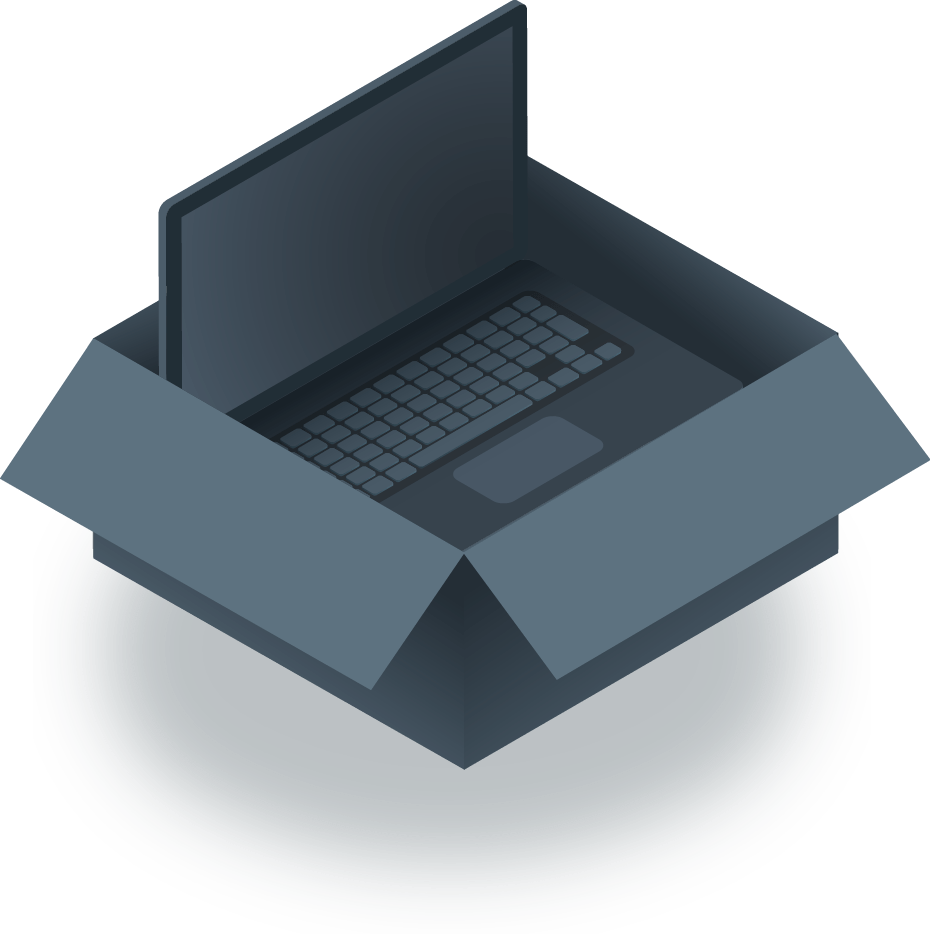
Select trusted couriers: Choose reliable couriers such as GroWrk, DHL, UPS, FedEx, or PostNL for international shipping. These carriers offer tracking services and have experience handling Dutch customs procedures..
Check service levels: Select the appropriate shipping option based on urgency. Express shipping (2-5 days) for high-priority deliveries. Standard shipping (5-10 days) for cost-effective options.
Use high-quality packaging: Secure laptops with sturdy, padded boxes and protective materials like bubble wrap, foam inserts, or air cushions to prevent damage during transit.
Disassemble where possible: If shipping accessories like chargers, docking stations, or monitors, package them separately to prevent damage. Remove detachable components if applicable.
Label clearly: Ensure the recipient’s name, address, and contact details are correctly labeled. Mark the package as "fragile" to encourage careful handling.
Accurate product descriptions: On the commercial invoice, provide a detailed and accurate description of the laptop, including its brand, model, and serial number. Inaccurate descriptions may cause customs delays.
Value declaration: Declare the correct value of the laptop to avoid under- or over-declaring, which could lead to customs inspections or fines. The declared value determines any applicable duties and taxes.
Customs declarations: Since the Netherlands is in the EU, shipments from within the EU do not require customs clearance. However, for shipments from outside the EU, include EU Single Administrative Document (SAD), commercial invoice, and packing list.
Proof of origin: If applicable, include a certificate of origin to determine eligibility for preferential trade agreements, which may reduce duties.
Understand import duties & taxes: Laptops are subject to 0% customs duties under the EU tariff classification but are subject to 21% VAT on the declared value.
Pre-pay duties and taxes: Some couriers allow for pre-paid duties and taxes to simplify customs clearance and prevent the recipient from facing unexpected charges upon arrival.
Protect against loss or damage: Consider purchasing shipping insurance for high-value laptops to protect against loss, theft, or damage during transit.
Compliance with Dutch and EU regulations: Ensure compliance with EU electronic safety standards, including CE marking, WEEE (Waste Electrical and Electronic Equipment), and RoHS (Restriction of Hazardous Substances) regulations before shipping.
Use tracking tools: Major couriers provide real-time tracking—monitor shipments closely to anticipate customs clearance updates and delivery progress.
Stay in touch with the recipient: Notify the recipient about the expected delivery timeline, tracking updates, and any customs-related requirements to avoid delays.
Expect weather and seasonal delays: Winter weather and peak shipping periods (e.g., Christmas, Black Friday, and Dutch national holidays) may cause delivery delays. Plan shipments accordingly.
Dutch domestic delivery options: For final delivery, consider working with PostNL, DHL Netherlands, DPD, or GLS Netherlands for efficient last-mile distribution.
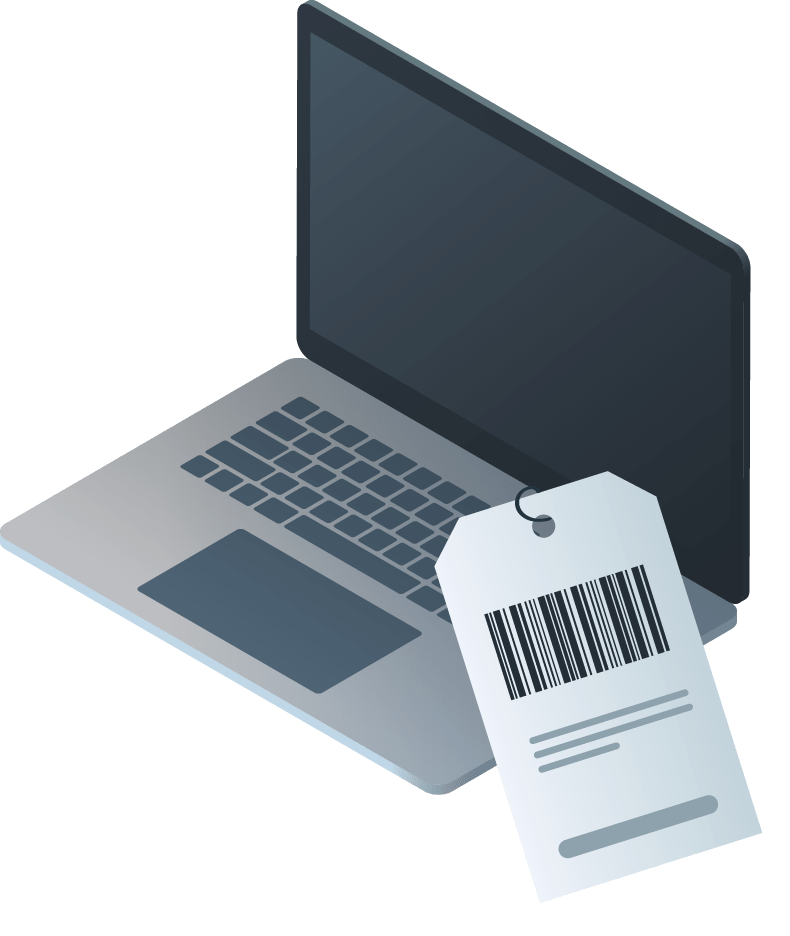
Average cost of IT Equipment in the Netherlands
Laptops (Business Grade):
- Mid-range: €700 - €1,500
- High-end: €1,500 - €3,000+
High-end models such as Apple MacBook Pro, Dell XPS, and Lenovo ThinkPad are priced on the higher end.
Monitors (Business Grade):
- Standard: €150 - €300
- Ultrawide/4K: €400 - €1,000
Monitors from trusted brands like Dell, Samsung, and LG typically range within these prices, with 4K or ultrawide models costing more.
Desktops (Business Grade):
- Standard Desktop PC: €500 - €1,500
- Workstation Desktop (for high-performance tasks): €1,500 - €3,500+
Prices depend on the brand and specifications, with options from HP, Lenovo, and Apple among the most common.
Printers (Laser):
- Standard Office Printers: €150 - €400
- High-Volume Printers: €600 - €2,000+
Leading brands such as HP, Canon, and Brother offer a wide range of models for office environments.
Public holidays & IT work hours to plan your shipment
Key public holidays in the Netherlands:
- New Year’s Day (Nieuwjaarsdag) – January 1
- Good Friday (Goede Vrijdag) – Friday before Easter Sunday (not a mandatory holiday but observed by some businesses)
- Easter Sunday and Monday (Pasen) – Movable dates, typically in March or April
- King’s Day (Koningsdag) – April 27
- Liberation Day (Bevrijdingsdag) – May 5 (official public holiday every five years, next in 2025)
- Ascension Day (Hemelvaartsdag) – 40 days after Easter Sunday
- Whit Sunday and Monday (Pinksteren) – 50 days after Easter Sunday
- Christmas Day (Eerste Kerstdag) – December 25
- Boxing Day (Tweede Kerstdag) – December 26
Typical work hours for IT professionals
- Regular Work Week: The standard work week for IT professionals in the Netherlands typically runs from 9 AM to 5 PM, Monday through Friday. Full-time employees usually work 36 to 40 hours per week, depending on the company and sector.
- Overtime and Flexibility: IT professionals may occasionally work overtime or shifts outside regular hours, especially in roles involving critical infrastructure, network security, or system maintenance. However, Dutch labor laws prioritize work-life balance, and excessive overtime is rare.
- Remote Work: The Netherlands has embraced remote and hybrid work models, especially in the IT sector. Many professionals have the flexibility to work from home or alternate between home and office, a trend that has accelerated since 2020.
What to consider when retrieving IT equipment from employees in the Netherlands
| Local delivery and logistics services |
|
| Inventory management |
|
| Logistics challenges for remote locations |
While the Netherlands is a relatively compact country, challenges can arise when retrieving equipment from rural or less accessible areas, such as the Wadden Islands. Ferry schedules and limited transportation routes can cause delays, while costs may increase for deliveries to remote locations. Additionally, ensuring compliance with packaging standards for electronics and proper documentation is crucial. Partnering with logistics providers familiar with these challenges can help streamline the process. |
| Equipment agreement with employees |
To safeguard company assets, it’s critical to have a signed Equipment Agreement with employees. This agreement should outline:
|
How to dispose of IT equipment in the Netherlands
Data wiping
Before disposing of IT equipment, ensure all sensitive data is securely erased to prevent unauthorized access. The Netherlands' General Data Protection Regulation (GDPR) mandates proper handling of personal data, including secure destruction. Use certified data wiping tools or professional data destruction services to comply with GDPR requirements.
Utilize certified e-waste recyclers
Partner with certified e-waste recycling companies or IT Asset Disposition (ITAD) providers in the Netherlands that comply with WEEE regulations. These companies provide certificates of destruction, ensuring that your organization meets legal obligations while protecting data and the environment.
Environmental compliance
Dutch authorities require businesses to responsibly dispose of electronic waste (e-waste) to protect the environment. E-waste includes unwanted electronic devices such as laptops, cables, batteries, and printers. Improper disposal can lead to environmental harm due to hazardous substances like lead and mercury. The Afvalbeheer Elektrische en Elektronische Apparatuur (WEEE) directive enforces e-waste management.
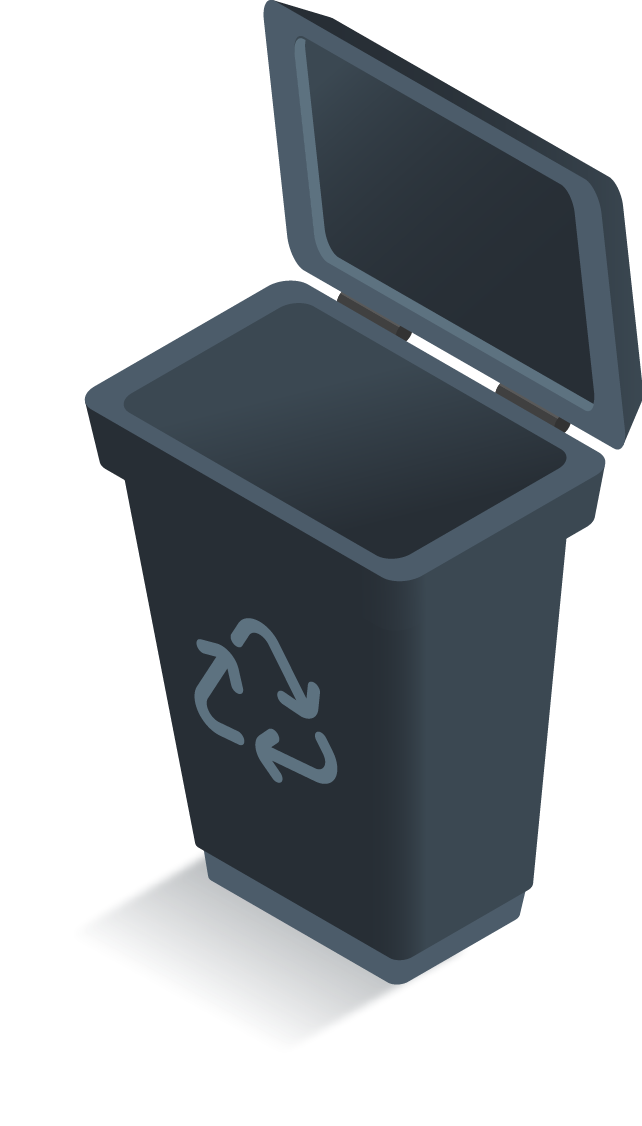
Local IT Outsourcing Solutions in the Netherlands
You can streamline your IT logistics and asset management with GroWrk’s comprehensive global solution. Whether it’s shipping equipment or managing IT assets across multiple regions, GroWrk helps you stay compliant and efficient, every step of the way. Here’s why GroWrk is the ideal partner for managing your IT assets in the Netherlands:

| 1. Wide global coverage |
| With operations in over 150 countries, including the Netherlands, GroWrk guarantees smooth deployment and management of your IT equipment for remote teams. Wherever your employees are located in the Netherlands, we ensure timely and hassle-free service to keep your business running efficiently. |
| 2. End-to-end asset management |
GroWrk simplifies the entire IT asset lifecycle, covering procurement, deployment, management, and retirement. By handling all logistics and compliance, we allow your team to focus on business growth, while we take care of IT operations. |
| 3. Intuitive platform for easy deployment |
GroWrk’s user-friendly platform makes it effortless to deploy and manage IT devices in the Netherlands. With just a few clicks, you can order, ship, and track equipment, reducing administrative overhead and minimizing costly errors. Our platform streamlines IT operations, cutting down on time and costs. |
| 4. Smooth delivery and equipment retrieval |
From delivering laptops, monitors, and IT accessories to remote employees across the Netherlands to retrieving assets from outgoing team members, GroWrk handles it all. We simplify the process so your team can focus on what matters most—delivering results. |
| 5. Compliance with Dutch import regulations |
GroWrk ensures that all shipments adhere to Dutch import requirements, including CE certification, WEEE disposal, and tax compliance. By managing these details, we eliminate the risk of delays or fines, ensuring your IT equipment arrives on time and fully compliant. |
| 6. Efficient repairs and maintenance |
GroWrk manages the entire repair and maintenance process, ensuring your devices remain in top working condition. From routine checkups to emergency fixes, we handle everything—allowing your teams to stay productive without worrying about technical disruptions. |
| 7. 24/7 Support for peace of mind |
Whether you need shipping, asset management, or troubleshooting assistance, GroWrk offers round-the-clock customer support. Our team is available anytime to guide you through the complexities of IT asset management and resolve any issues quickly. |
Procure, configure, and deploy your IT devices from one platform


